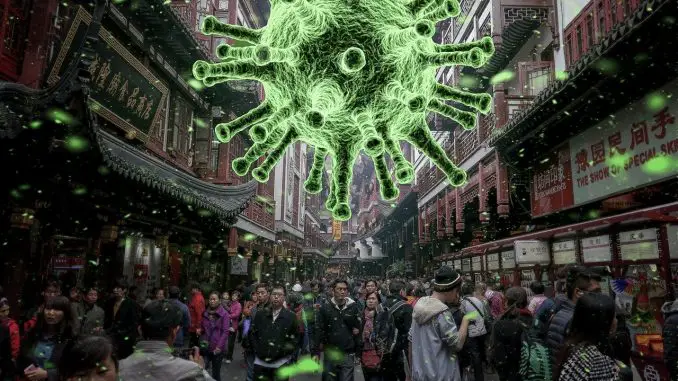
One of the most important questions about the new coronavirus is how long you are immune to recovery. The answer will affect the strategies to combat the outbreak.
The outbreak of the new coronavirus is growing with great vigor and has reached pandemic spread. Europe is now the epicenter of the infection, WHO Director-General Tedros Adhanom Ghebreyesus said at a press conference. Many countries are introducing powerful measures such as quarantine, closed schools and banning major events to reduce the spread of infection. The strategy rarely involves fewer cases, but rather that the cases are spread out over a longer period so that the healthcare system is able to take care of those who are seriously ill. The vast majority will not have to seek medical care because they will only be mild or moderately ill.
In the absence of vaccines, social distancing is the tool we have for protecting at-risk groups and ensuring that care is not overloaded. Exactly what measures are most effective and when to take them is not safe.
One side effect of slowly spreading the spread of infection over a period of time is that flock immunity will emerge when many have become infected. Flock immunity is based on the fact that a sufficient number of people in a group are immune – through either vaccination or through illness – which makes the virus difficult to spread. In this way, the mass of immune can protect, for example, risk groups or people who are not immune from getting sick.
The more infectious a virus is, the greater the proportion of the group needs to be immune in order to achieve herd immunity. Measles, which is one of the world’s most contagious diseases, requires at least 95 percent of the population to be vaccinated or immune. The new coronavirus is not very contagious compared to, for example, measles or whooping cough, but calculations nevertheless show that about 60 percent of the population needs to be immune to not spread the infection uncontrollably.
The big problem with these assumptions about herd immunity is that we do not know how long the immunity lasts after being recovered from covid-19. There are a few reports from China that people have become infected again. The World Health Organization, WHO, probably believes that the patients were at low virus levels when they were discharged from hospitals, but that the tests failed.
There are lots of coronaviruses, but only seven cause disease in humans. Four of them mainly cause easier problems. They are estimated to be the cause of a quarter of all colds in the world. These coronaviruses are not very well studied.
Since they have been in circulation for a long time and are not very dangerous for the individual or society, they have not been studied well enough. Therefore, there are no particularly good studies that we can refer to, although the new coronavirus differs from these coronaviruses.
But those who have gone through an infection with one of these milder coronaviruses have immunity for a while, but it is not lifelong.
No one knows how long you are immune after recovering from an infection of the new coronavirus
The significantly more serious diseases SARS and MERS are also caused by coronavirus. Nor are they particularly well-studied in terms of immunity after recovery. But also these give immunity a period after, also there it is uncertain how long.
Therefore, it is believed that those who have recovered from covid-19, caused by the new coronavirus, will be protected.
But no one knows how long you are immune after recovering from an infection of the new coronavirus. Our experience from other viruses is that you get immunity for a while at least. Only a few viruses do not provide good protection afterward. Norovirus, which causes stomach upset, is one.
If natural immunity is short-lived, it means that people are again susceptible to infection. Then the flock immunity in the population drops and the virus can again spread on a larger scale. Then a vaccine can be used to create protection at regular intervals, for example at risk groups or especially vulnerable people such as health care professionals. It is likely that it will take a few years for a vaccine to be ready for use.
But this virus will probably remain in the community and will come back periodically to those who do not have protection, then a vaccine is needed.
Leave a Reply